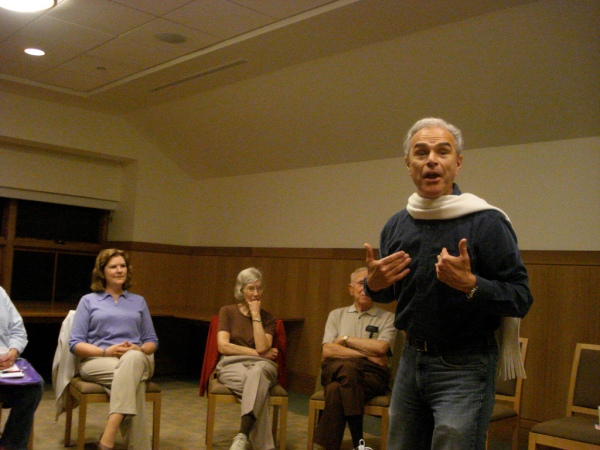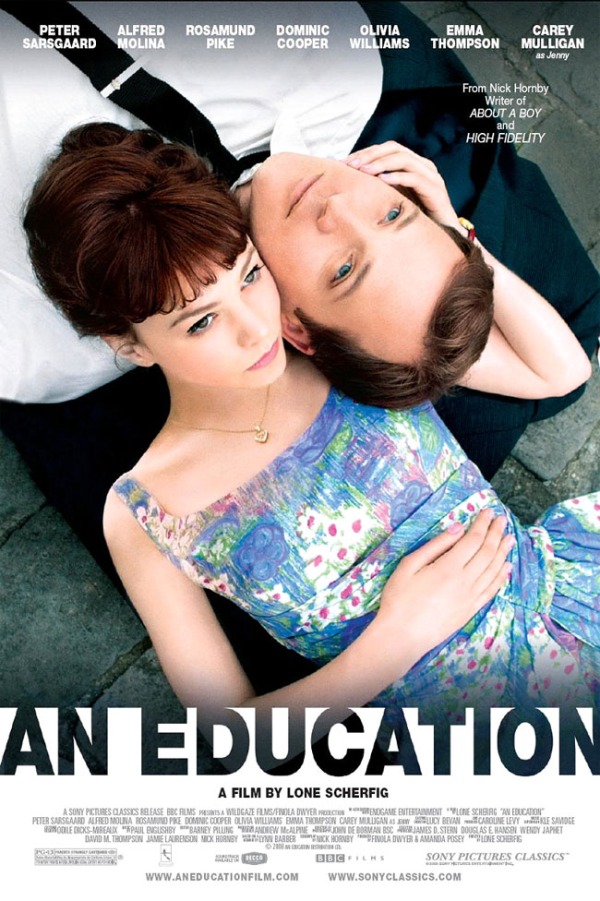Recently I wrote a response to the post-apocalyptic film, The Road. In the film, the world as we know has come to an end, and humans are losing their humanity in the struggle to survive. This film comes to mind as I continue thinking about the challenge raised by The Economist concerning modern progress and moral sensibility.
Morality and post-apocalyptic visions loom large in the writings of the moral philosopher, Alisdair MacIntyre. In his essay, “The Achievement of Alisdair MacIntyre,” Edward Oakes introduces key themes of MacIntyre’s thought. Drawing from Oakes’ helpful summary, I’d like to review MacIntyre’s ideas in response to The Economist.
What does a moral wasteland look like?
Drawing inspiration from Walter Miller’s science-fiction novel A Canticle for Leibowitz, MacIntyre describes the moral wasteland of our modern world in a parable where a series of environmental crisis lead to a violent revolt against the natural sciences.
Widespread riots occur, laboratories are burnt down, physicists are lynched, books and instruments are destroyed. Finally a Know-Nothing political movement takes power and successfully abolishes science teaching in schools and universities, imprisoning and executing the remaining scientists. Later still, there is a reaction against this destructive movement and enlightened people seek to revive science, although they have largely forgotten what it was. But all that they possess are fragments: a knowledge of experiments detached from any knowledge of the theoretical context which gave them significance; parts of theories unrelated either to the other bits and pieces of theory or to experiment; instruments whose use has been forgotten; half-chapters from books, single pages from articles, not always fully legible because torn and charred.
In this post-science world, MacIntyre describes an emerging cult of science that memorizes textual fragments, memorizes Theorems and surviving portions of the periodic table. Nothing is complete. There is no context for scientific knowledge or practice, so what remains is a jumble of words and practices that no one fully grasps, and yet they practice and debate. The ability to make sense of these scientific fragments appears irretrievably lost.
MacIntryre proceeds to suggest that this story really did happen in the world of moral reasoning. We are not entering a dark ages of morality, we’ve been living in one. And we don’t have the tools to understand moral reasoning, let alone make moral argument.
What does it mean to be wrong in a Marxist world?
He encountered this catastrophe firsthand in the 60s when he and fellow Marxists condemned the Soviet invasions of Hungary (1956) and Czechoslovakia (1968) as wrong. MacIntyre was forced to ask himself, “What do you mean by “wrong”?” At that point, he realized that Marxism provided him with no objective standard for declaring this act as wrong. There was no room for human conscience in a utilitarian focus upon consequences and not actions. Present actions were always part of some future consequence, thus one could never truly condemn an act as wrong. This problem led MacIntyre toward Thomism and toward an analysis on the wasteland of modern moral reasoning.
What’s so funny about peace, love and understanding?
Elvis Costello bemoans a life adrift in the currents of pain and hatred and misery. His longing for peace, love and understanding might be about personal loss but may also point to culture that has lost our navigational tools that point us to goodness, purpose, and a moral progress that means something more than the trendy cultural “sin of the week.”
Aristotle wrote in a way that assumed there are genuine final causes, goals, purposes, and aims. This way of looking toward an end state (teleology) saturates Aristotle’s writings from science to ethics to politics. He could speak of progress with a clear direction toward specific goals that were considered actually good, true and beautiful.
In the ethical realm, these words provided a ground for understanding humans as what we could be. In other words, these words/ideas focused on a future ideal. Working from this defined ideal, we have a basis to discuss what is good and what is not good. We can talk about goals and purposes of human life.
MacIntyre argues that in the post-Newtonian world, we lost any sense of teleology. Building on Newton’s mechanistic worldview, Darwin argued that “natural selection” is the mechanism for explaining an organ’s functionality. These two ideas led thinkers to focus on “life as it is” not “life as it is supposed to be.” The discussion of purpose no longer had any real meaning or real content. In other words, we lost the foundation for words like good, moral and purpose.
MacIntyre acknowledges that Nietzche understands the implication of what happened when he writes, “If there is nothing to morality but expressions of will, my morality can only be what my will creates.” Morality has no basis. Of course, humans continue to use words like moral, good, purpose and so on, but they are fragments of a worldview that was gone.
Is the person who protests the loudest the most moral?
MacIntyre argues that the modern liberal system (he suggests conservatism and liberalism are debates within the liberal system) understand morality as voicing our feelings and opinions. Since we don’t have a way to think about ultimate purposes, we don’t have a way to truly define moral progress. Thus our morality is about voicing our complaint.
This lack of a common ground turns our debates about war, abortion or other topics into shrill, yelling matches. We voice a loud (and often mocking protest against those with whom we disagree), but we don’t really speak to those outside our camp. We shout at them.
Martin Buber, Eugen Rosenstock-Huessy (ERH), and Franz Rozenweig all realized that our modern world suffered a dis-ease in speech. In the 1940s, ERH wrote that we may be facing a speechless future. What did he mean?
Our words would no longer have power to connect us. Buber wrote that our discussion were not discussions at all but mutual monologue where we speak to ourselves instead of really speaking to the someone who is other from us. He studied Communist cells, Jewish kibbutz, and Christian churches and concluded that our so-called communities are really communities of affinity were we all have to think alike to join.
The ability to talk to someone outside our “tribe,” our political camp, our religion, and find common ground was disappearing. Writing over 40 years later, Scott Peck and Robert Bellah warned that our civil society was breaking under the weight of unrestrained individualism. The civil veneer that holds our society together has grown thin and is seriously fraying.
MacIntyre cautiously voices concerns about the descent of our culture into morass of civil confusion, suggesting we may already be in the middle of another dark ages:
It is always dangerous to draw too precise parallels between one historical period and another; and among the more misleading of such parallels are those which have been drawn between our own age . . . and the epoch in which the Roman Empire declined into the Dark Ages. Nonetheless certain parallels there are. . . . What they set themselves to achieve—often not recognizing fully what they were doing—was the construction of new forms of community within which the moral life could be sustained so that both morality and civility might survive the coming ages of barbarism and darkness. If my account of our moral condition is correct, we ought also to conclude that for some time now we too have reached that turning point. . . . This time, however, the barbarians are not waiting beyond the frontiers, they have already been governing us for quite some time. And it is our lack of consciousness of this that constitutes part of our predicament. We are not waiting for Godot, but for another—and doubtless very different—St. Benedict.
Where is Benedict when we need him?
When The Economist posted their lament for progress in the modern world, they voiced a growing discontent that is echoed in political spheres, religious spheres, education spheres and even among family spheres. There is a pervasive sense for many Westerners that something is very wrong. Our iphones and Kindles and xBox 360s cannot rescue us from the abyss that Gertrude Himmelfarb warned about in her severe cultural analysis.
One the critiques of MacIntyre is that he points to Benedict but has yet to offer a robust vision for the way to move forward and out from this moral paralysis. He suggests a civil conversation between science and Thomistic Aristotelian ethics but Oakes and others still would like to hear more about how to get there.
Who is the man or the community of speech thinkers that might help us rebuild and restore dialogue and find a way to talk about morality within resonating inspiration? I don’t know.
I’ve been trying to learn this for the past eighteen years and I am still not sure.
I see pointers and clues. We a serious engagement with Einstein and his shattering impact upon Newtonian mechanistic laws. Field theory opens a new discussion with new ways to think and talk about our world. Even when it’s misunderstood it continues opening new channels for thought and discussion.
Personally, I’ve found the science of Rupert Sheldrake applying field theory to biology and consciousness and memory as provocative. During the last year, I’ve enjoyed the scientific theology of Thomas F. Torrance as he seriously engaged the claims of Einstein et al in relation to his faith in the person of Jesus Christ. Another helpful development has been the re-emerging discussion of Biblical wisdom literature as a guide to engaging those who are outside our camp and those who may even be considered our enemies. My friend Charles Strohmer is thinking and writing about how wisdom speaks to foreign policy (especially in this era where Western and non-Western leaders struggle to find ways to meet).
I’ll write more about my previously claim that Jesus Christ points the way forward for me in this discussion later. I would love to hear about other “Benedicts” who may have thoughts and patterns that could lead us away from the dis-integrated tribalism that infects and is infecting our world and our capacity to speak, leading us into the age of glare where we behold
“the appalling record of the twentieth century; … the sullenness of so many high school students today, the emptiness of their elders in college, the despair of the underclass, the desperate fun-seeking of the jet set, the divorce rate, the incidence of child abuse, and on and on.”






